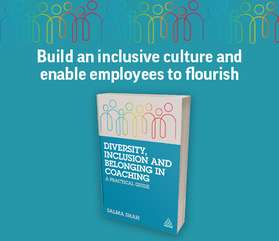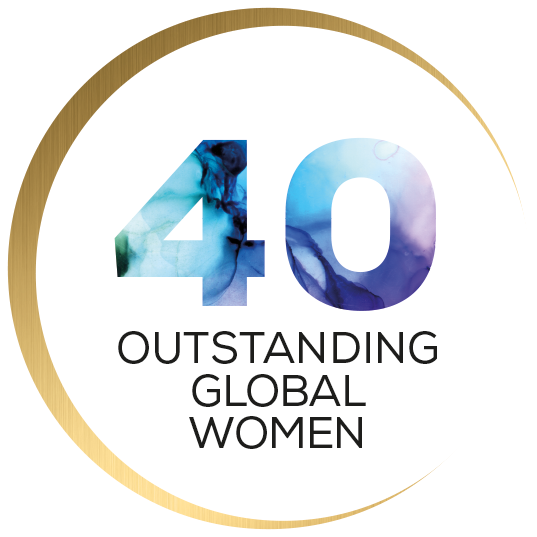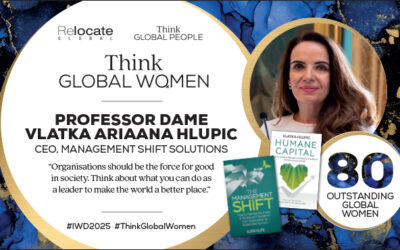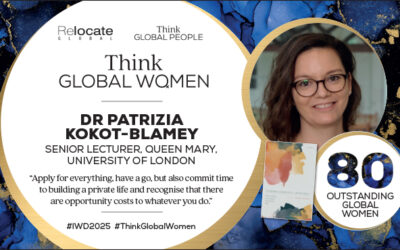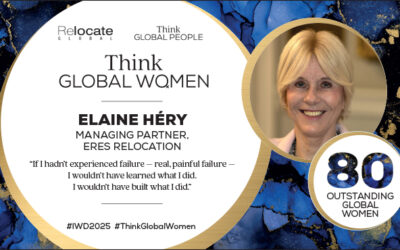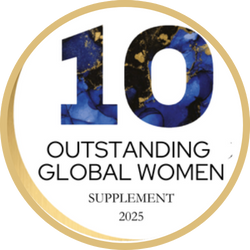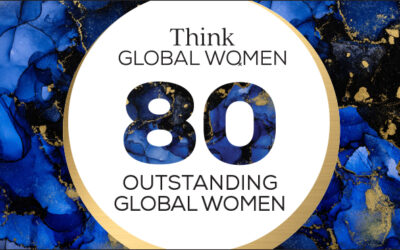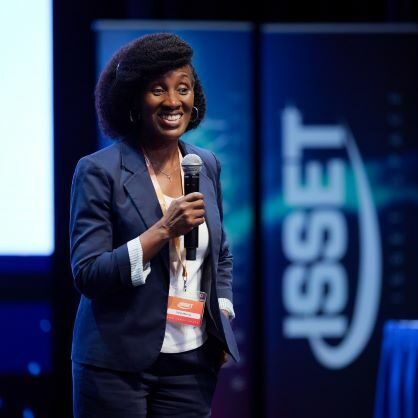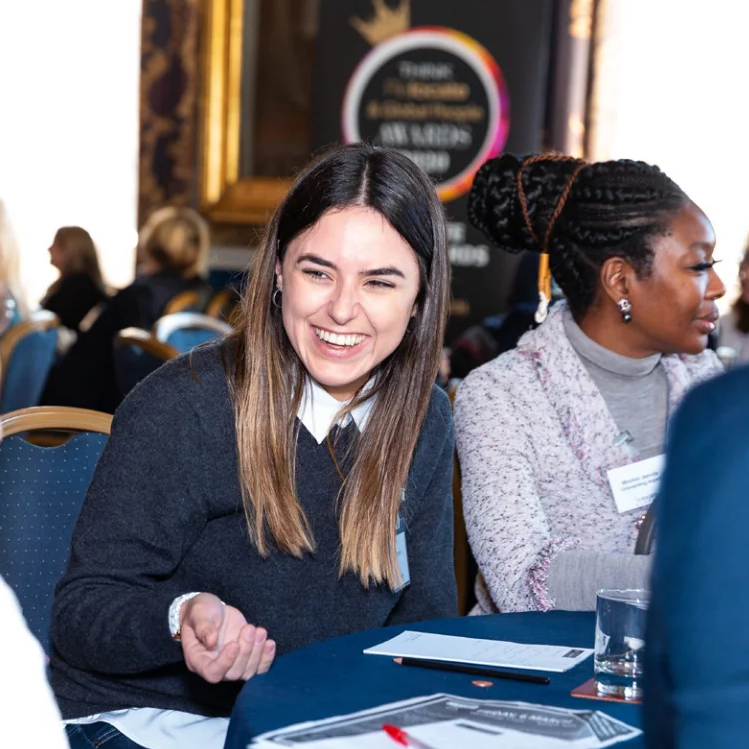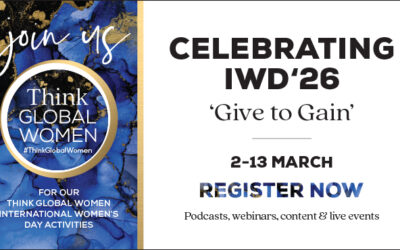Think Women
Salma Shah | 40 Outstanding Global Women 2023
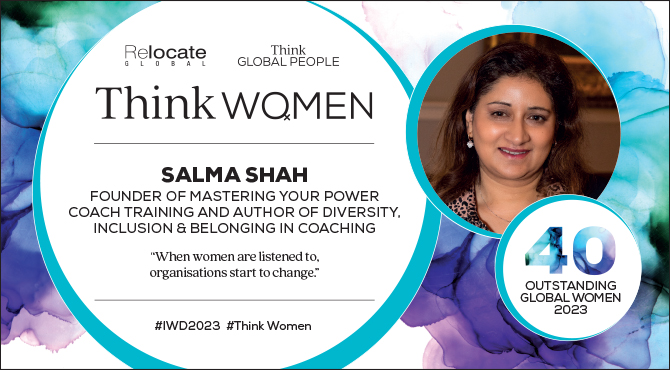
When women are listened to, organisations start to change
Organisations need strong and inspirational women leaders who can challenge the status quo, promote and support other women, and start to transform and re-energise organisations, says diversity, inclusion and coaching expert, Salma Shah.
Salma has travelled internationally delivering coach training and leadership programs for major organisations including Oracle, Lexmark, Ernst and Young (Kuwait), Pearsons, The Met Police, John Lewis Partership, Co-op group, O2, Reuters, HP and Microsoft.
“Coaching and developing employees is not a one size fits all activity. Race, gender, class, education, culture and religion can all affect the needs of employees. Coaches, leaders and line managers must understand the impact of intersectionality and address it.”
Salma Shah, Founder of Mastering Your Power Coach Training and author of ”Diversity, Inclusion and Belonging in Coaching”
She says she has met “phenomenal women leaders in large organisations” and those that stand out for her are “highly empathetic, they have great relationships and are supportive, and are holding the ladder up” for other women to progress.
“When that starts to happen in organisations, then things start to change,” she explains. “Other women start to feel they can also become leaders. Women who are real and open and supportive of other women, when they are in a position of power, the decision making starts to change. The questions that get asked start to change, the answers start to change, and change starts to happen. They bring in different people and they see and hear things that could otherwise get missed because everyone else has a similar perspective.”
Salma launched her book ‘Diversity, Inclusion and Belonging in Coaching’ in April 2022, a practical guide full of tools, case studies, interviews, examples and activities that allows coaches, leaders and line managers to create an inclusive culture of belonging and psychological safety to ensure that all employees flourish. In March 2023, her book was shortlisted for the business book awards.
Prior to starting her coaching and training business she had gained over 15 years of leadership, transformation and commercial experience within the Information Technology and Digital industry. Working with the UK’s largest FTSE100 clients to understand their strategic objectives, financial management and human relationship management challenges, determine appropriate solutions (both business and technology) and map those solutions to roadmaps for execution.
She says that coaching and developing employees is not a one size fits all activity. Race, gender, class, education, culture and religion can all affect the needs of employees. Coaches, leaders and line managers must understand the impact of intersectionality and address it.
Based in London, Salma works with clients at a senior level in public, private and voluntary sectors; supervises and trains other coaches and presents keynotes at events both in the UK and internationally.
A woman in the tech industry
After gaining a degree in psychology and an MSC in Information Systems, Salma went to work in the tech sector for a small UK software house. She says being brave enough to ask for the job at interview, even when she was inexperienced and not full of confidence, was a turning point in her career.
“They were looking for somebody who had one year of work experience on the graduate training programme. I had none. I just had my MSc but at the interview I told them: ‘I assure you, you will get a lot from me if you give me this opportunity’.”
It paid off and she got the job and ended up travelling all over the world.
“Even if I haven’t always felt confident on the inside, I’ve put myself out there and that’s paid off,” she says. “My parents came to the UK from Pakistan in 1963 and one of the things I did was learn how to navigate different worlds quite early. When I started getting given global assignments at work in my 20s it was actually really easy for me to navigate different cultures. I was curious and open to learning about other cultures.”
She spent over five years at the software house before moving to Oracle, where she learnt how to navigate the tough corporate US culture that was prevalent in the 1990s in technology.
“They were looking for somebody more experienced than me, but I went for the job. It was a very different culture from my first job and it took me a while to figure that culture out. I learned a lot and found that being in a minority meant that I was remembered, often as the only female.
“I learned that if I had something good to say, people did listen. What I was not aware of naively, in my late 20s, was that there was a whole layer of people and groups I had no access to.”
After working for a number of other smaller software companies Salma studied for a coaching qualification and began to take on clients in the evenings and weekends.
“In my early 30s I was really passionate to get back to human behaviour and coaching, but I had to keep it a secret from my corporate world. At that time, psychology and coaching were seen as fluffy and not series. I was in the sales part of the company, which was very macho and aggressive.”
Running her own business was also a departure from her family background, which she describes as “risk averse”.
Learning to be self-employed was a big change from working the corporate world, where she had a car, pension and, sick pay. Learning to manage her cashflow, set boundaries, build up a support network and avoid burnout have all been important lessons.
“Running my own business is one of the hardest things I have ever done, but now I would not want to go back as an employee. I’m a people person and I am innately curious about people.”
She says that if organisations really want to change, then leaders need to be prepared for “discomfort and challenge”. They also need to look at what changes need to be made through an intersectional lens, so that the conversation is not just about women as a single group, but a recognition that people have different strengths and backgrounds.
“Some leaders want to make changes because they have a strong ethical belief that diversity and inclusion are important,” she says. “Others can see that there is a business case for change. Organisations are now waking up to the fact that this change is necessary, and that it is not about box ticking.”

